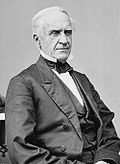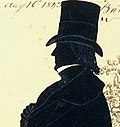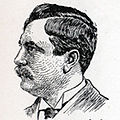Top Qs
Timeline
Chat
Perspective
Maryland's 4th congressional district
U.S. House district for Maryland From Wikipedia, the free encyclopedia
Remove ads
Maryland's 4th congressional district wraps around the eastern edge of Washington, D.C., taking in most of Prince George's County and a small portion of Montgomery County. It is home to several racially diverse middle-class suburbs, including College Park, Fort Washington, Greenbelt, and Laurel. With a median household income of $86,941, it is the wealthiest black-majority district in the United States.[1]
Remove ads
Like much of the Washington metropolitan area, the 4th district is substantially influenced by the footprint of the nearby federal government. More than 22% of working adults in this district are employed in the public sector. The Washington Metro provides easy access into the nation's capital, where many employees make daily commutes. Various government entities also sit within the 4th district, most notably the United States Census Bureau, NASA's Goddard Space Flight Center and the Beltsville Agricultural Research Center. The University of Maryland, College Park—the state's flagship public institution of higher education—is another major presence.
Throughout much of the 20th century, the area within this district was predominately white. But as a thriving black middle class emerged in the region and laws eliminating racial discrimination in housing were passed, many African Americans opted to leave Washington for Prince George's County in search of a better quality of life. By the early 1990s, the county had become majority black, and today white voters comprise just 11% of the 4th district. Recently, the district has experienced large amounts of immigration from El Salvador, Guatemala, and Honduras in Central America, leading to the district having the largest Latino population in Maryland and one of the largest Central American populations out of any district.[3] These racial transformations have turned the district into the most Democratic seat in Maryland and one of the most Democratic in the country, with a Cook Partisan Voting Index rating of D+39.[2] In 2022, Democrat Glenn Ivey was elected to represent it with 90.1% of the vote.
Remove ads
Recent election results from statewide races
Remove ads
Historical boundaries
Maryland's fourth congressional district was one of the about 50 original congressional districts. When it was organized in 1788, it covered Baltimore, Baltimore County, and Harford County. According to the 1790 census, the fourth district had a population of 53,913, nearly 20% of whom were slaves.[7]
In 1792, the fourth district was moved to western Maryland, with its eastern boundary being a north to south line running about the midpoint of Frederick County, Maryland. The new district had a population of 36,026, with less than 10% of the population being slaves.[8] The 1800 census population was 38,015, and the boundaries remained unchanged in 1802.[9]
Remove ads
Composition
Summarize
Perspective
For the 118th and successive Congresses (based on redistricting following the 2020 census), the district contains all or portions of the following counties and communities:[10]
- Ashton-Sandy Spring (part; also 8th), Burtonsville, Calverton (part; also 8th; shared with Prince George's County), Cloverly (part; also 8th), Fairland (part; also 8th), Spencerville (part; also 8th), Takoma Park (part; also 8th)
- Accokeek (part; also 5th), Adelphi, Beltsville, Berwyn Heights, Bladensburg, Brentwood, Calverton (part; also 8th; shared with Montgomery County), Camp Springs (part; also 5th), Capitol Heights, Cedar Heights, Cheverly, Chillum, Clinton, College Park, Colmar Manor, Coral Hills, Cottage City, District Heights, East Riverdale, Edmonston, Fairmount Heights, Forestville, Friendly, Glenn Dale (part; also 5th), Fairwood (part; also 5th), Forest Heights, Forestville (part; also 5th) Fort Washington, Glassmanor, Glenarden, Greenbelt, Hillcrest Heights, Hillandale (part; also 8th; shared with Montgomery County), Hyattsville, Konterra, Lake Arbor (part; also 5th), Landover, Landover Hills, Langley Park, Lanham, Laurel, Marlow Heights, Maryland Park, Mitchellville (part; also 5th), Morningside, Mount Rainier, National Harbor, New Carrollton, North Brentwood, Oxon Hill, Peppermill Village, Riverdale Park, Seabrook, Seat Pleasant, Silver Hill, South Laurel, Springdale, Suitland, Summerfield, Temple Hills, University Park, Walker Mill, West Laurel, Woodlawn
Recent elections
1970s
1980s
1990s
2000s
2010s
2020s
Remove ads
List of members representing the district
Summarize
Perspective
1789–1835: one seat
1835–1843: two seats
From 1835 to 1843, two seats were apportioned, elected at-large on a general ticket.
1843–present: one seat
Remove ads
See also
Notes
- Supported the Jackson faction in the 1824 United States presidential election
References
External links
Wikiwand - on
Seamless Wikipedia browsing. On steroids.
Remove ads







































